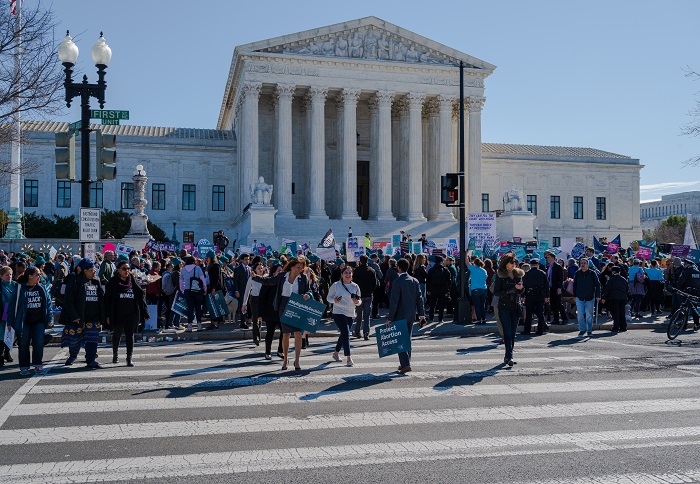By Cindy Krischer Goodman
South Florida Sun Sentinel headline news online news
(South Florida Sun Sentinel) Monday marks the second anniversary of the U.S. Supreme Court’s reversal of Roe v. Wade, a ruling that removed federal protection for abortion rights and launched a new series of battles in Florida over access to reproductive care.
After two years of political and legal wrangling, Florida law now prohibits women from getting abortions after six weeks of pregnancy. It is one of the most restrictive bans in the country.
In November, Floridians could regain abortion protections.
Florida voters will go to the polls and, along with choosing a President, they will decide whether to enshrine abortion rights in the state constitution. This choice could restore the access that has been severely restricted — but only if 60% of voters agree.
headline news online news
On the summer day two years ago when the U.S. Supreme Court removed the 50-year-old constitutional right to abortion across the United States, women in the waiting rooms at Florida abortion clinics had the legal right to the procedure through 24 weeks. They needed only one appointment to get medication or a surgical procedure to end an unwanted pregnancy.
Since then, Florida lawmakers have twice passed restrictions for abortions in the state. Challenges to those laws took the fight over abortion restrictions to the Florida Supreme Court.
The six-week ban became effective May 1, 2024, and prohibits the procedure before most women know they are pregnant. It replaced the state’s previous 15-week abortion ban that took effect in July 2022. In addition, Florida law now requires patients to complete two in-person doctor visits within 24 hours to receive abortion services.
Three states, including Florida, ban abortion after six weeks from the first day of a pregnant woman’s last period, with few exceptions. In Florida, the exceptions are for rape, incest and human trafficking up to the third trimester, but require documentation such as a police report.
(Please click onto the image of the cat to hear Classical Music)

Before the Florida Supreme Court’s April ruling that allowed the six-week ban to go into effect, Florida had been a key point of access to women across the southeastern U.S. living in states that have ceased nearly all abortion services after Roe v. Wade was overturned. Florida medical providers performed over 84,000 abortions in 2023, including nearly 8,000 for people who traveled from outside the state.
headline news online news
Since May 1, Florida women are traveling to places where abortion is less restricted. Others are using telehealth appointments with out-of-state doctors to obtain abortion-inducing medication. Organizations called abortion funds are assisting with travel for those who need financial help.
In a news conference, Stephanie Loraine Piñeiro, executive director of the Florida Access Network abortion fund, said her group has helped 150 people since May 1, but the fund can only cover about 50% of requested expenses on average.
“Florida’s ban forces Floridians and people across the southeast to travel further, exhausting funds for travel and practical support even faster,” Piñeiro said.
On Monday, Florida politicians are holding events to mark the two-year anniversary of overturning of Roe v. Wade.
“It’s been two years since the U.S. Supreme Court overturned Roe v. Wade, stripping women of their fundamental rights and freedoms,” said Florida Democratic Senator Lauren Book. “Here in Florida, this dark anniversary must be a call to action as we work to pass Amendment 4 to restore and enshrine abortion rights into our State Constitution this November. Our health, safety, and freedom are on the line. We must all join the fight, because no one is coming to save us but ourselves.”
headline news online news
The battle to get voters to approve abortion access in November already has reproductive rights and pro-life advocates holding rallies across the state.
National polls show the majority of the public did not want to see Roe v. Wade overturned and that most people feel that abortion is a personal medical decision.
Florida is one of 11 states with abortion measures on their ballots, seeking either to affirm that their state constitution protects the right to abortion or that nothing in the state constitution provides that right, according to KFF’s health policy research.
If passed, Amendment 4 Right to Abortion Initiative would allow abortion access in Florida until fetal viability, which is usually around 24 weeks, “or when necessary to protect the patient’s health, as determined by the patient’s healthcare provider.”
Tewannah Aman, executive director of Broward Right to Life, said her group and others are working to defeat Amendment 4. “When we are victorious, it will be a relief,” she said. “This is pivotal for us. We believe every life matters.”
Aman said she already is rejoicing because with the strict Florida ban, abortion clinics are already closing. “We are celebrating. From the time there is a heartbeat, we want to protect the life of the mother and the baby.”
©2024 South Florida Sun Sentinel. Visit at sun-sentinel.com. Distributed by Tribune Content Agency, LLC.
headline news online news


